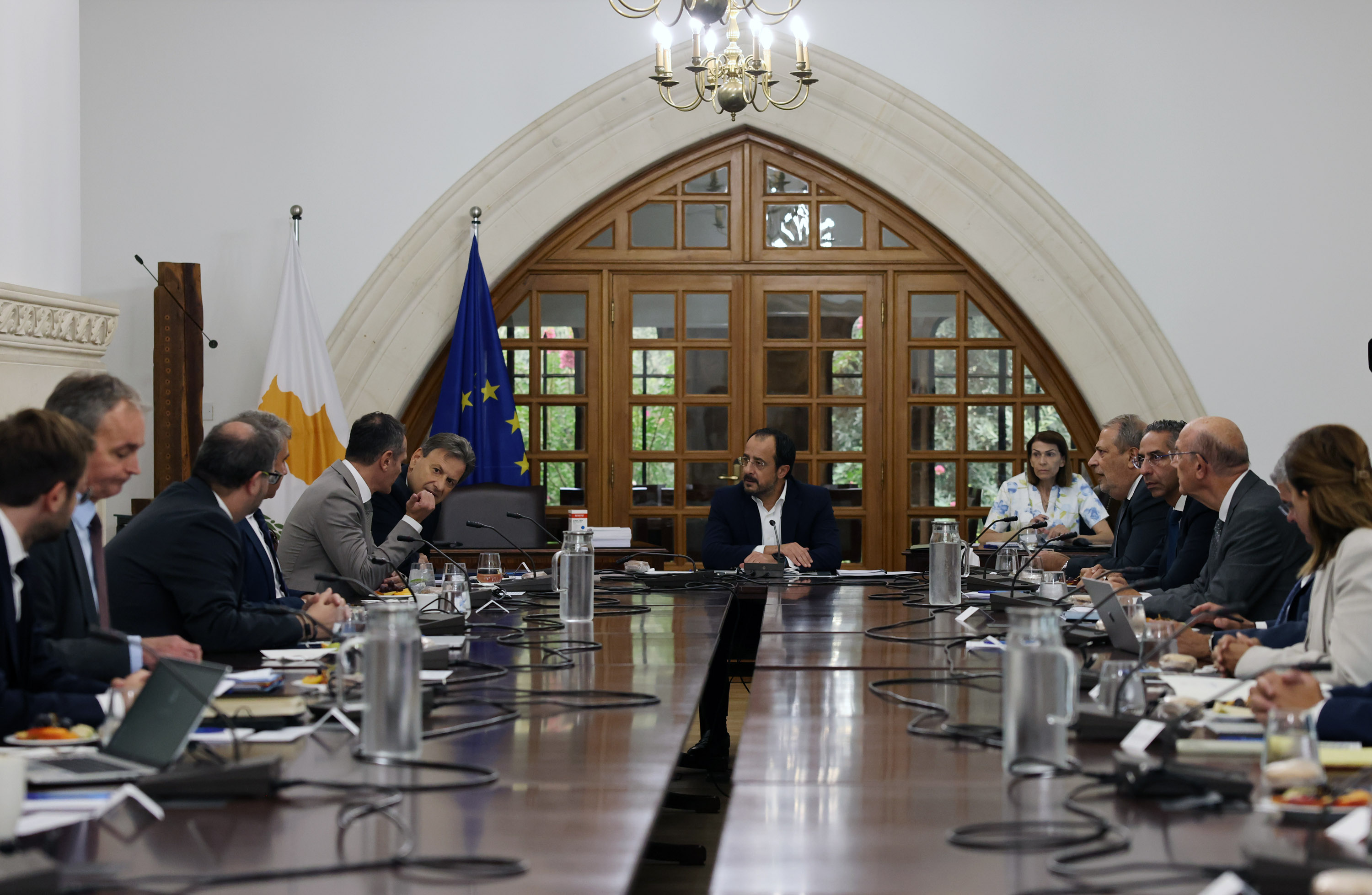A marathon meeting on the Cyprus-Greece electricity interconnector that continued into the evening on Tuesday, was “a good decision”, according to President Nikos Christodoulides, who said discussions would be continued.
His statements were echoed by the energy ministers of Cyprus and Greece.
Speaking after the meeting, Energy Minister Giorgos Papanastasiou said discussions were “constructive” and would continue.
“We must continue the work where it began today. I cannot say anything else because it is work in progress,” he added.
Greek Energy Minister Theodoros Skylakakis agreed the meeting was constructive and that work was continuing.
“Now I have to get back to Athens,” he said.
At around 7pm President Nikos Christodoulides, who was chairing the meeting, left the presidential palace to attend a scheduled evening function.
The other attendees took a short break and then continued discussions without the president. Christodoulides rejoined them later in the night.
“The discussion was very constructive, it helps clarify many issues where there were ambiguities and things weren’t clear,” the president told reporters.
He added that “the discussion will be continued.”
“The decision for this discussion was very good,” he said.
Leaving the palace earlier, Christodoulides spoke briefly to journalists, describing the talks as “constructive”.
The meeting got underway at around 3pm. Taking part were Cyprus’ ministers of energy and finance, as well as the attorney-general and the deputy attorney-general.
Greece’s energy minister was also attending, as well as a representative of the EU Commission, a representative of cable manufacturers Nexans and Greece’s independent power transmission system operator (Admie) which is the project promoter.
Christodoulides had summoned the meeting so that the Cypriot side – which will bear 67 per cent of the cost of the mooted subsea cable – could gain more clarity on the financial aspect.
Earlier in the day, government spokesman Konstantinos Letymbiotis said the gathering might be “decisive” for the future of the project known as the Great Sea Interconnector (GSI).
Speaking to the state broadcaster, Letymbiotis had not ruled out the possibility of another meeting.
Media reports said Cyprus is considering asking the European Commission to raise its pledged grant of €657 million – accounting for about a third of the project’s total cost – by another €200 million. This is because the €657 million had been pledged at a time when the project was costed at €1.4 billion; by contrast the latest estimates place the price tag at €1.9 billion.
Meanwhile US ambassador to Cyprus Julie Fisher reiterated on Tuesday that the electricity connection with Greece is an important opportunity for Cyprus.
“I think we have made our views clear over the Great Sea Interconnector and the importance of ending Cyprus’ energy isolation. We see this as an important opportunity for Cyprus,” she said.
Her statements came after a meeting between the president and Celeste Wallander, Assistant Secretary of Defence for International Security Affairs at the US Department of Defence.
Last week, Fisher did not mince her words when she said Cyprus should take the opportunity for the interconnector project or it will be left behind to burn mazut and struggle with its green transition.
Ahead of the meeting at the presidential palace, Letymbiotis clarified the cost-benefit analysis – provided by the project promoter – has been sent to the European Investment Bank for evaluation.
The Employers and Industrialists Federation (OEV) threw its weight behind an energy connection between Cyprus and Greece, and by extension, with the entire European Union.
In a statement, the federation stressed that the sustainable electricity interconnection must be a project which is of European co-ownership and, as such, entitled to European geopolitical safeguards.
“The project must, with reliable independent studies, begin and finish without dramatic, for the economy, overruns in the estimated costs, with the introduction of caps on the financial exposure of the state,” OEV said.









Click here to change your cookie preferences